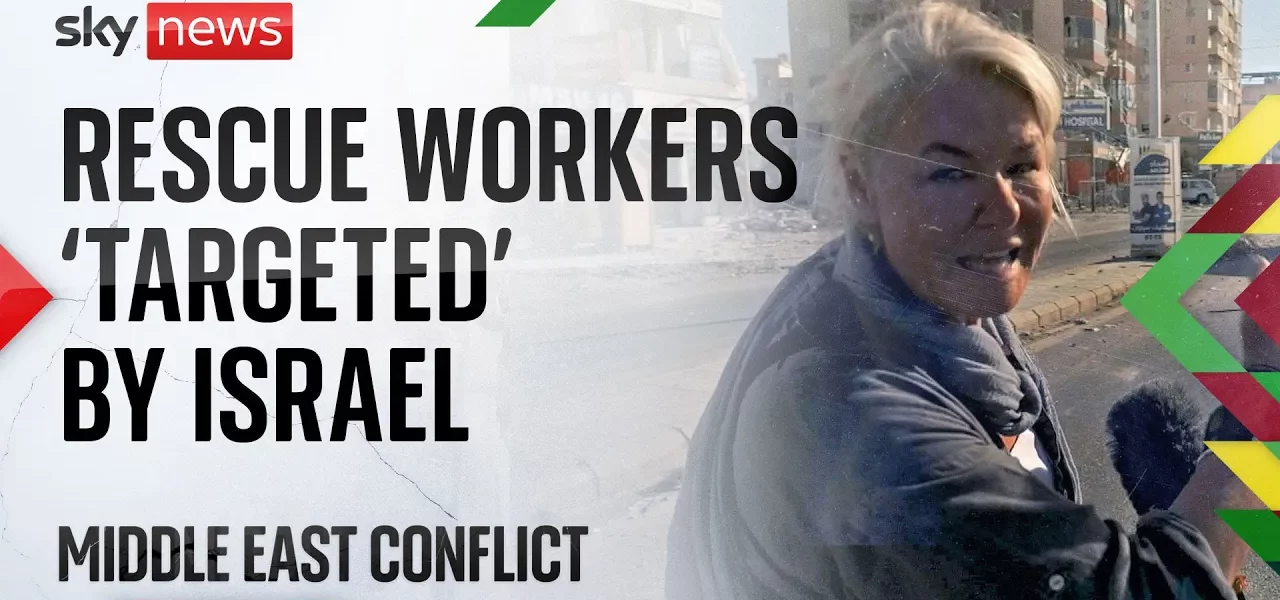Emergency Workers Under Attack in Lebanon – A Dire Situation

The ongoing conflict in Lebanon has escalated to a critical level, placing emergency workers in extreme danger. This article delves into the harrowing experiences of these brave individuals and the implications for civilian safety amid relentless air strikes.
Introduction
In recent weeks, the situation in Lebanon has deteriorated significantly, with emergency workers facing unprecedented risks as they attempt to carry out their vital rescue operations. The conflict has not only affected civilians but has increasingly targeted those meant to provide assistance and care. This article will explore the realities faced by these workers, the implications of international humanitarian laws, and the tragic consequences for the communities they serve.
The Dangerous Landscape for Emergency Workers
Emergency workers in Lebanon are experiencing a crisis of safety. Under international humanitarian law, they are supposed to be protected during conflicts, yet reality tells a different story.
Targeted Attacks
Reports have confirmed that many emergency workers have been killed or injured in direct attacks. The following points summarize the alarming trend:
- Seven emergency workers were killed in a single incident in Beirut.
- Colleagues in the South and Beirut have faced repeated air strikes.
- Forty ambulances have been destroyed, and 24 rescue stations have been targeted directly.
The Psychological Toll
The stress of working in such perilous conditions is taking a significant psychological toll on rescue workers. Many express feelings of fear and helplessness, as illustrated by the experiences shared:
- Rescue teams have been struck while attempting to assist their own colleagues.
- Emergency workers report feeling that they are now primary targets in the conflict.
Civilians Caught in the Crossfire
The impact of the conflict extends beyond emergency workers, as civilians are increasingly at risk. The stories of families affected by the violence paint a grim picture of life in Lebanon today.
Tragic Losses
One of the most heartbreaking aspects of the ongoing conflict is the loss of civilian lives. A recent bombing resulted in the deaths of an entire family:
- Five people were killed, including three women, a baby, and a grandfather.
- Civilians report feeling unsafe even in hospitals, which are supposed to be sanctuaries during conflicts.
Fear Among Patients and Healthcare Workers
Patients and healthcare professionals alike are experiencing heightened anxiety. Many have shared their fears:
- Patients felt terrified when a strike landed near the hospital entrance.
- Children have been left traumatized, screaming in fear during attacks.
The Humanitarian Crisis Deepens
The humanitarian crisis in Lebanon is worsening daily as the casualty figures continue to rise. Emergency workers are left questioning their ability to safely provide care and assistance.
Call for Accountability
Despite international humanitarian laws protecting emergency workers and civilians, the persistent attacks raise serious concerns about accountability. Many are calling for:
- Increased international scrutiny of the conflict.
- Stricter enforcement of humanitarian law to protect those providing aid.
Community Resilience
Even in the face of danger, emergency workers like Yasa express a commitment to their communities. They emphasize the need to remain on the ground to support their fellow citizens, despite the risks involved.
Conclusion
The situation for emergency workers in Lebanon is dire and warrants urgent attention. As they face the dual threats of attacks and the psychological burden of their work, the need for international support and accountability has never been more critical. It is essential for the global community to rally around these individuals and advocate for their safety and the protection of civilians. If you are moved by these events, consider supporting organizations working to provide humanitarian aid in Lebanon and share this information to raise awareness.
“`




